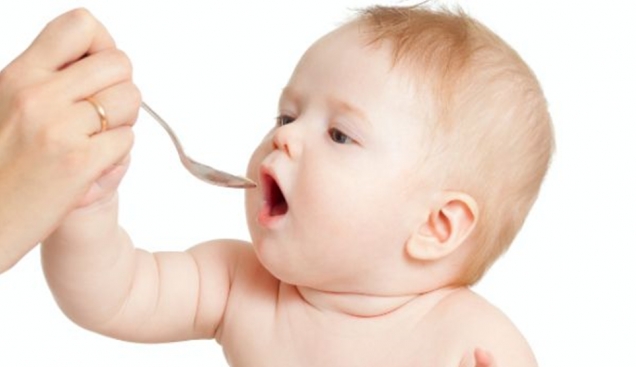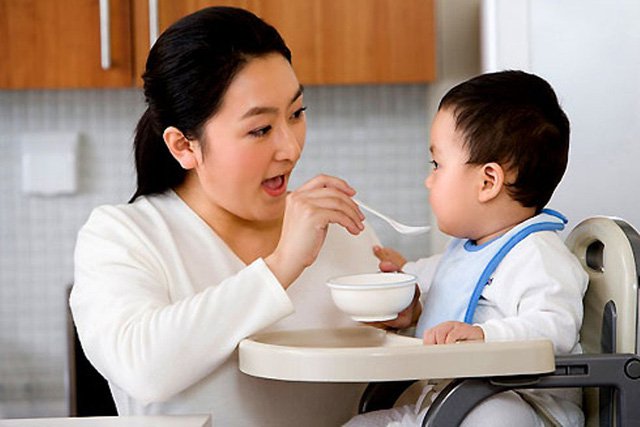Guidelines for rehydration for children with diarrhea
This is an automatically translated article.
The article was professionally consulted by Specialist Doctor II Le Thanh Cam - Department of Pediatrics - Neonatology - Vinmec Danang International General Hospital. Uncle has 15 years of experience in diagnosis & treatment of pediatric diseases; She used to work at the Pediatric Department - Da Nang Hospital and Da Nang Center for Obstetrics and Gynecology. Her strength is diagnosis and treatment of pediatric diseases; resuscitation, pediatric emergency.
Children often have diarrhea, so they often lose water, lack of water will lead to serious complications, which can affect life. However, children with intestinal diarrhea can still absorb water, so children must be rehydrated as soon as they know they have diarrhea.
1. What is diarrhea in children?
Diarrhea in children is when children have bowel movements many times a day. Normally, babies under 1 month old can usually have 4 to 10 bowel movements a day. Babies from 1 to 3 months old usually have more than 3 bowel movements a day, but the number of bowel movements depends on each child, some babies go out right after a meal, some babies go once every 2 days, some babies 1 week. only went out once. But for children under 2 years old, they often have soft, moldy stools, while older children have more than 3 bowel movements a day and loose or watery stools.
Diarrhea in children is divided into 3 main types:
Acute diarrhea. Persistent diarrhea: when diarrhea persists for 14 days or more. Invasive diarrhea with bloody mucus. Diarrhea in children can appear all year round, but there are two times when the disease often occurs with a large number of patients, that is the time of the hot season because conditions are favorable for the growth of bacteria and the time of diarrhea in children. In the cold season, it is easy to create conditions for the virus to spread, causing children to have viral diarrhea, especially Rotavirus.

Bệnh tiêu chảy ở trẻ em có thể xuất hiện quanh năm
2. Causes of diarrhea in children
Children with diarrhea have many different causes, but most of them are due to viral infections, bacterial infections, parasitic infections, food allergies, etc., so children go out several times a day. Because the child's immune system is still weak, it is easy to be attacked by bacteria and viruses, causing intestinal infections, causing diarrhea in children. Improper nutrition is the same cause of diarrhea in children. Eating right not only helps children grow up healthy, but also helps prevent diarrhea. Play will help children to promote their brain perfection, but playing can hardly avoid children coming into contact with pathogens such as bacteria and viruses that stick to their limbs. If hygiene is not done properly, children are susceptible to bacterial infections that cause diarrhea in children.
3. Caring for children with diarrhea
3.1. Rehydration and electrolytes for children with diarrhea Children when they have a lot of water in their stools, they are often dehydrated, the body lacks water, which will lead to serious complications, which can affect their lives. However, children with intestinal diarrhea can still absorb water, so they must be given rehydration drinks and electrolytes as soon as they know they have diarrhea.
Common rehydration solutions are oresol solution, oresol II, hydrite tablets or packs. Making the correct oresol rehydration solution is important to help children recover quickly and minimize dehydration and weight loss:
Each large pack of oresol needs to be mixed with 1 liter of boiled water to cool (should not mix half a pack of oresol with half a liter of water) Each pack of oresol II or each capsule/pack of hydrite mixed with 200ml of cooled boiled water. Rehydration solution, electrolyte oresol has been mixed, if more than 24 hours are not taken, it must be discarded. In case there is no oresol solution, you can cook salted porridge (a handful of rice, a pinch of salt and 6 bowls of rice with clean water - equivalent to 1.2 liters of water), simmer until there are 5 bowls of porridge remaining. equivalent to 1 liter) for children to drink gradually.
The amount of oresol rehydration solution for children is calculated as follows:
Children under 2 years old: Give the child 50-100 ml of oresol after each bowel movement; Children 2 - 10 years old: Give children 100-200 ml of oresol after each bowel movement; Children over 10 years old: Give oresol to children until their thirst is gone after each bowel movement. If the child does not like the taste of this rehydration solution, replace it with another rehydration solution, when the number of diarrhea is not much (2-3 times per day) can be rehydrated with daily drinking water or juice. Some children have diarrhea accompanied by vomiting a lot, so rehydration should be done slowly, giving the child a little bit of water to drink. Children under 2 years old give a little drink with a spoon, older children can give small sips.

Trẻ dưới 2 tuổi cho uống nước ít một bằng thìa, trẻ lớn hơn có thể cho uống từng ngụm nhỏ
If the child vomits, wait 10 minutes and then continue to give the child to drink, but give it more slowly, taking each spoon 2-3 minutes apart. Children who are rehydrated and have enough electrolytes will urinate a lot, be flexible, and have fresh skin and lips. Rehydration must be continued until the baby has a thick stool and less than 3 times per day.
Encourage mothers to breastfeed when babies ask for a drink. When the baby is finished breastfeeding, continue to give the oresol solution. Mothers should not feed their babies during the first 4 hours of treatment with oresol.
When seeing the following signs, parents should take the child to the doctor for a follow-up examination:
Passing a lot of loose stools (constantly); Recurrent vomiting; Thirst more, crying without tears, eyes sunken and dry, tongue dry, skin pinch disappears slowly. Poor eating or drinking, lethargy, fatigue. The child does not get better after 2 days of treatment; Higher fever and blood in stools. 3.2. Nutrition In addition to rehydration is an important treatment mentioned above, nutrition for children with diarrhea also needs attention. When sick, children lack essential nutrients for the body due to diarrhea, vomiting, anorexia, so it is not reasonable for children to be on a diet.
In order for the child not to lose weight, it is necessary to maintain an appropriate diet. Food should be softer and more liquid than usual, but still have to have enough 4 food groups (flour, fat, protein, vegetables), for children to eat many small meals, with an interval of about 2 hours between meals.

Để trẻ không bị sụt cân, cần duy trì chế độ ăn thích hợp
Children under 6 months of age are still breastfed, it is necessary to continue breastfeeding normally and actively breastfeeding because breast milk contains enough nutrients, which is easy to digest and absorb. If your baby is formula-fed, continue to breastfeed normally. In some cases, babies with diarrhea caused by Rotavirus have poor intolerance to lactose in milk, so replace nursing milk with lactose-free milk as prescribed by the doctor.
Older children need to give them enough food to eat, they should not be forced to fast or abstain.
Avoid foods that are high in sugar, low in protein and electrolytes, foods that are low in nutrients, high in fiber and difficult to digest such as bamboo shoots, celery, corn and whole beans.
Avoid using industrial juice solutions, carbonated water causing indigestion, bloating, diarrhea, and electrolyte disturbances in the body.
4. Prevention of diarrhea in children
Exclusive breastfeeding for at least the first 6 months of life. Weaning food properly, hygienically and full of nutrients (protein, fat, sugar, fruit). Use clean water. Give children correct and reasonable complementary foods, ensure hygiene when processing, preserving, using clean water, clean and fresh foods that are not contaminated with bacteria or plant protection chemicals. Wash hands with soap: After going to the toilet, changing diapers for children, before preparing food, feeding children, taking care of children. Fully vaccinated against vaccines in the expanded program of immunization. Get vaccinated against rotavirus diarrhea. Vinmec International General Hospital is currently providing a Package Immunization Program with a variety of vaccines for different audiences, from infants, young children, women before and during pregnancy.
In addition to rehydration for children with diarrhea, parents should pay attention to nutrition to improve resistance for children. At the same time, add supporting foods containing lysine, essential micro-minerals and vitamins such as zinc, chromium, selenium, B vitamins,... snacks and less digestive problems.
Parents can learn more:
Why do you need to supplement Lysine for your baby?
The role of zinc - Guidelines for reasonable zinc supplementation
Please visit the website Vinmec.com regularly and update useful information to take care of your baby and family.
This article is written for readers from Sài Gòn, Hà Nội, Hồ Chí Minh, Phú Quốc, Nha Trang, Hạ Long, Hải Phòng, Đà Nẵng.





